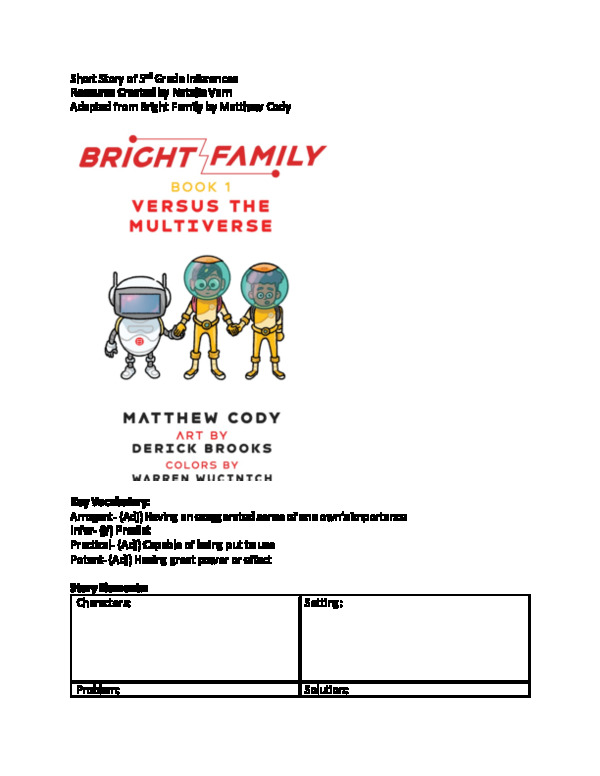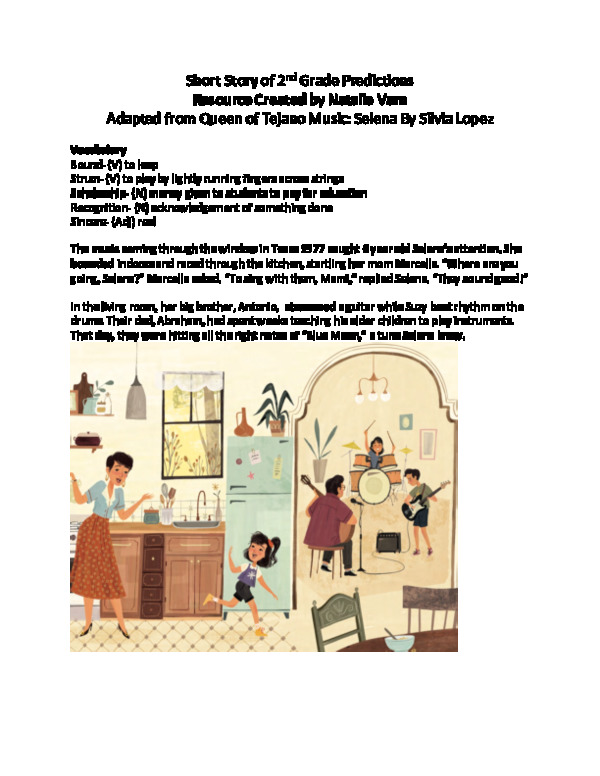Speech Therapy -> Expressive Language -> Answering Questions
Answering Questions
Responding to questions asked by another.
Reference links
-
Communication/Interaction Development At Mealtimes For the Multiply Handicapped Child: Implications For Use of Augmentative Communication Systems 1
Author: Morris, S. - The mealtime setting can be creatively used by the speech-language pathologist to increase the positive interactions between the child and caregiver and to establish the basic prerequisites for the development of communication. Specific program suggestions are provided to enable the speech-language pathologist to utilize the mealtime setting to integrate both vocal and nonvocal communicative objectives.
pubs.asha.org
Activity List(s)
Top 20 (View all)
- Thanksgiving Word List - 10 words 4
- 15 Simple "what" and "where" questions related to Christmas 2
- Activity List for "Spring Flowers: Using Descriptive Language" Resource 1
- Kiki's Holiday Breakfast Discussion and Thought Starters 0
- Questions about the Solar System - "Here We Are" 5
- Soccer Equipment List 1
- Simple What Questions - related to self 0
- Simple Where Questions - house related 1
- Questions and Conversation Starters for Kiki and Robo Make Snow 0
- How Questions related to Christmas Holiday 0
- Basketball Equipment List 2
- WH questions- Kiki Celebrates Spring Story 1
- How Questions 0
- Simple Who Questions - related to daily life 0
- What questions related to summer 2
- Thanksgiving History Story 5
- WH Questions for Rosa's Playdate Story 1
- Halloween WH- questions 2
- Reading Comprehension- Inferencing 1
- Simple When Questions - related to daily life 0
Visual Schedule Cards
Goal Bank
- Bev will accurately answer wh- (what/where/when/why) questions given contextual clues with 90% accuracy when given minimal cues across 5 consecutive sessions as measured by clinician data and observation to increase expressive language skills. 3
- To increase her expressive and receptive vocabulary, Jane will label or identify targeted age-appropriate vocabulary (colors , animals , shapes , etc.) with 80% accuracy given moderate cueing across 3 consecutive sessions within 6 months time. 0
- Elisha will answer simple y/n and "wh" questions appropriately with and without visual cues with 80% accuracy across 3 consecutive sessions to improve receptive and expressive language skills. 3
- Rogelio will answer basic questions (including, but not limited to, personal information and/or classroom themes/academic topics) using contextually relevant information/facts with 80% accuracy across 3 consecutive therapy sessions as measured by clinician data and observation to increase expressive language skills. 2
- In order to improve receptive and expressive language skills, Derick will recall key facts from paragraphs presented orally by clinician with increasing complexity and length (beginning with 5-7 phonemes with progression to 5 paragraph, then 7 paragraphs, etc. as accuracy increases), with 80% accuracy across 6 consecutive sessions. 2
- Keiko will answer questions about classroom curriculum-relevant materials (e.g. vocabulary, concepts, passages, and story materials) using developmentally appropriate syntax and morphology with 90% accuracy across 3 consecutive therapy sessions as measured by clinician data and observation to increase language and grammatical skills. 2
- Madaline will listen to 4-6 phoneme paragraphs, identify key components, answer "wh" questions requiring recall of details and understanding of concepts presented, and retell the narrative, retaining critical information with 90% accuracy over 3 consecutive sessions as measured by SLP data and observation to increase narrative development and overall language skills. 3
- Given examples of social situations, Melva will problem-solve a variety of functional scenarios(e.g. to increase orientation and safety awareness) with 90% accuracy across 3 consecutive therapy sessions. 4
Resources
Top 20 (View all)
-

Alphabet Match Mat Toy Theme Activity
Sara Lowczyk
An alphabet match mat with 26 vocabulary words, 1 alphabet board. 2 sets of vocabulary cards with visual support of words and without. Bonus sentence strips.
1
-

2
-

Valentine’s Day Vocabulary Cards
Sara Lowczyk
Large vocabulary cards to be used in matching games, go-fish, flash cards, etc.
2
-

Rosa's Playdate
Lauren De Vries, MS, CCC-SLP
Short story about a plans that had to change unexpectedly!
Includes activity list1
-

Santa Dress Up
Jessica Lenden-Holt
Winter clothing for Santa. Dress up activity. Can also be used as a reinforcer.
2
-

Winter Vocabulary/Parent Handout
Sara Lowczyk
Parent handout with vocabulary terms printed on the back.
1
-

Thanksgiving Grateful Choice Board and Worksheet
Sara Lowczyk
A visual choice board containing 12 choices for "I am thankful for" activities to provide a visual support, 4 sentence strips, people and object Thanksgiving vocabulary cards, thankful worksheet.
Includes activity list1
-

Wh- Question Visuals
Jessica Lenden-Holt
11 pages. Large and small Wh-question visuals (who, what, when, where, how, why) with explanation and visuals examples. Two pages of simple practice Wh-questions.
2
-

Kitchen Items/Food Items/Create a Scene Activity
Jessica Lenden-Holt
19 pages. Variety of kitchen and food pictures with other kitchen items. Can be modified for a variety of language or articulation activities. Wh-question cards, command cards, recipe card, and more
Includes activity list4
-

Sight Words Valentine’s Day Game Boards
Sara Lowczyk
6 Game Boards separated by grade sight word lists.
1
-

School Lunch Choice Pictures
Jessica Lenden-Holt
School Lunch Choice Pictures (main dish) for choice making/picture exchange/labeling/vocabulary building.
3
-

Circus Themed Language Activities/Reinforcer
Jessica Lenden-Holt
14 pages circus performers, large tent, food items, dart game, variety of balloons, different size items, popcorn reinforcer and more. Target question and command cards included.
2
-

1
-

Camping Themed Language Activities
Jessica Lenden-Holt
21 page of camping photos and activities. Create a Camping Scene, Blank Map, Large Backpack and camping items, Fish of different sizes/fishing pole, question and command cards. Use as a reinforcer ...
Includes activity list5
-

Sammy Sidekick Where Question Visuals
Jessica Lenden-Holt
Images of Sammy Sidekick in different locations that can be used for where questions. Images from Pixabay
3
-

Reading Comprehension: Inferencing, Space & Robots
Natalie Varn
This adapted story is geared towards targeting inferencing, story elements, and vocabulary for students who have an interest in space or robots.
4
-

More/Less Concept Book
Sara Lowczyk
A basic concepts book with 25 pages of more/less options, sentence strip/pronoun activities, worksheets and vocabulary cards.
2
-

Woodland Animals/Forest Cariboo Cards
Sara Lowczyk
40 Cariboo cards (two sets, one with words and one without words) related to woodland animals/forest vocabulary. Can also be used as small flash cards for other activities.
1
-

Reading Comprehension: Predictions For Students Interested In Music
Natalie Varn
This resource is geared towards readers at the 2nd grade level who are targeting making predictions and expanding vocabulary. The short story is an adapted version of Queen of Tejano Music: Selena ...
2
-

Roll a Dice Game-Build a Snowman
Jessica Lenden-Holt
Roll a Dice token reinforcer game. Build a Snowman.
3

%20(1).png)
